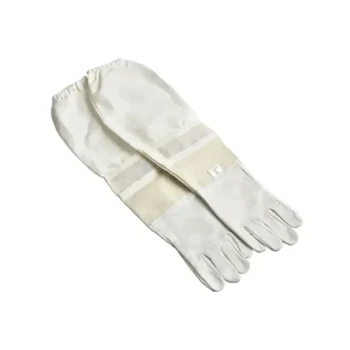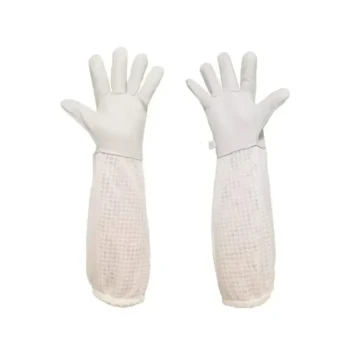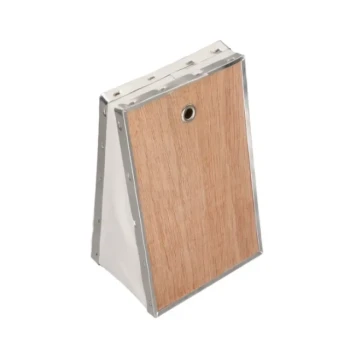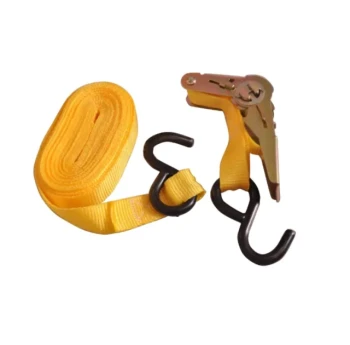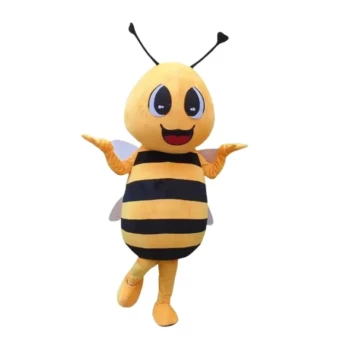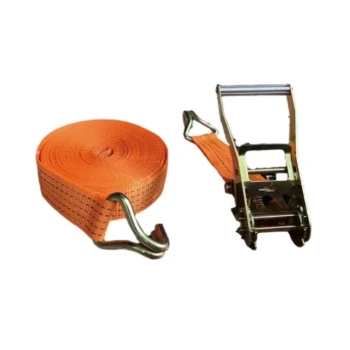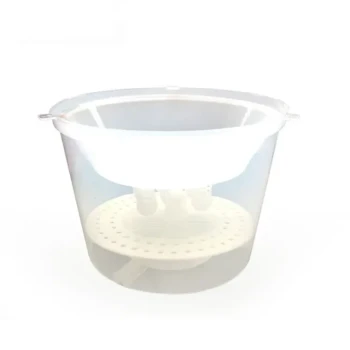At its core, using the right beekeeping gloves is about far more than just preventing stings. The correct gloves provide a critical balance of protection, dexterity, comfort, and confidence that directly impacts your effectiveness and the well-being of your hive. They transform from a simple piece of safety equipment into a tool for more precise and calm beekeeping.
The central purpose of the right beekeeping gloves is not simply to create a barrier, but to enable confident, gentle, and precise interactions with the hive, ultimately benefiting both the beekeeper and the bees.
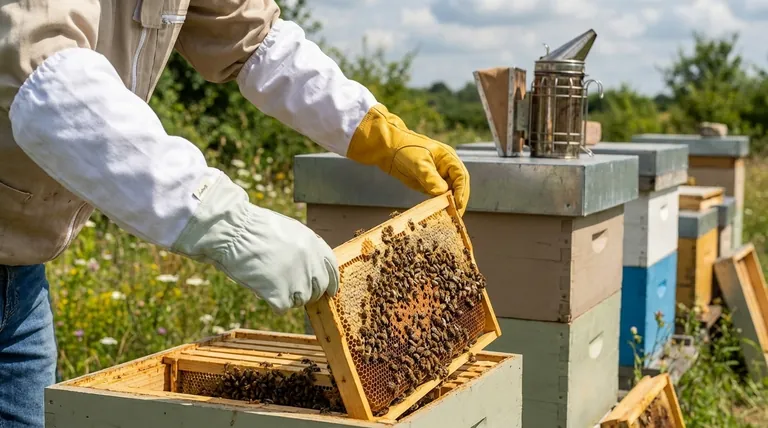
The Foundation: Uncompromising Protection
Your hands are the most exposed part of your body during a hive inspection. Proper gloves create a necessary and reliable barrier that allows you to work without fear.
Shielding Against Stings
The most obvious benefit is the physical shield. High-quality gloves made from materials like goatskin or thick leather are designed to prevent bee stingers from penetrating through to your skin.
These gloves typically feature long sleeves or gauntlets that extend up the forearm, providing comprehensive coverage for both your hands and arms.
Ensuring a Secure Seal
A critical feature of proper beekeeping gloves is an elastic end around the cuff. This ensures a tight seal against your suit or skin.
This secure closure is vital for preventing bees from crawling inside your gloves, which is a common cause of stings on the wrists and forearms.
Beyond Protection: Enabling Finesse and Confidence
While protection is the primary function, the right gloves enable better beekeeping practices. The goal is to feel secure enough to work calmly and deliberately.
The Critical Role of Dexterity
A glove that fits snugly but not tightly is essential. This proper fit allows you to handle frames, tools, and even the queen with precision.
Excess material from poorly-fitting gloves can lead you to accidentally crush bees or damage delicate comb, which can agitate the colony.
Fostering a Calm Presence
When you feel secure and protected from stings, your entire demeanor changes. This confidence translates into smoother, more deliberate movements.
A calm beekeeper is less likely to make sudden, jerky motions that bees perceive as a threat, leading to a much more pleasant experience for everyone involved.
Maintaining Hive Hygiene
Gloves also serve as a hygienic barrier. They prevent oils, dirt, or other contaminants on your hands from being introduced into the sterile hive environment.
Simultaneously, they protect you from sticky honey and propolis, keeping your hands clean and making cleanup easier after an inspection.
Understanding the Trade-offs
No single piece of equipment is perfect for every situation. It's important to understand the compromise between maximum protection and maximum sensitivity.
The Argument for Sensitivity
Some experienced beekeepers argue that thick gloves reduce the "touch and finesse" needed for delicate hive work. They feel that direct contact allows for a better sense of the hive's condition.
However, for most beekeepers, especially those who are new or working with a particularly defensive colony, the risk of stings far outweighs this potential loss of sensitivity.
Finding a Middle Ground: Nitrile Gloves
As a compromise, some beekeepers opt for disposable nitrile exam gloves. While they offer far less protection than leather, they provide a barrier while preserving almost all of your sense of touch.
Nitrile gloves are often used by experienced beekeepers for tasks requiring extreme delicacy, but they are not a substitute for traditional gloves when maximum protection is the priority.
Selecting the Right Gloves for Your Needs
Choosing the right glove depends entirely on your experience level, the temperament of your bees, and the task at hand.
- If your primary focus is maximum protection: Choose thick, high-quality leather or goatskin gloves with long gauntlets for complete peace of mind.
- If your primary focus is dexterity and sensitivity: Consider well-fitted, supple goatskin gloves, which offer a great balance of protection and feel.
- If your primary focus is performing a delicate task as an experienced beekeeper: Nitrile gloves can be a suitable option, but accept the significantly increased risk of stings.
Ultimately, the right beekeeping gloves are a fundamental tool that empowers you to be a more effective, confident, and gentle steward of your colonies.
Summary Table:
| Key Benefit | Why It Matters |
|---|---|
| Sting Protection | High-quality leather or goatskin prevents stingers from penetrating the skin. |
| Enhanced Dexterity | A proper fit allows for precise handling of frames, tools, and the queen. |
| Increased Confidence | Feeling protected reduces anxiety, leading to calmer, smoother movements. |
| Improved Hygiene | Acts as a barrier, keeping contaminants out of the hive and your hands clean. |
| Secure Seal | Elastic cuffs prevent bees from crawling inside the gloves, protecting wrists and arms. |
Equip your apiary for success with HONESTBEE.
As a trusted wholesale supplier for commercial apiaries and distributors, we understand that your productivity and the health of your colonies depend on reliable, high-performance equipment. The right gloves are a fundamental part of that equation.
Let HONESTBEE provide your operation with durable, well-designed beekeeping gloves that offer the perfect balance of protection and dexterity your team needs. We supply the quality equipment that helps professional beekeepers work more effectively and safely.
Contact HONESTBEE today to discuss your wholesale needs and discover how our beekeeping supplies can support your business's growth.
Visual Guide
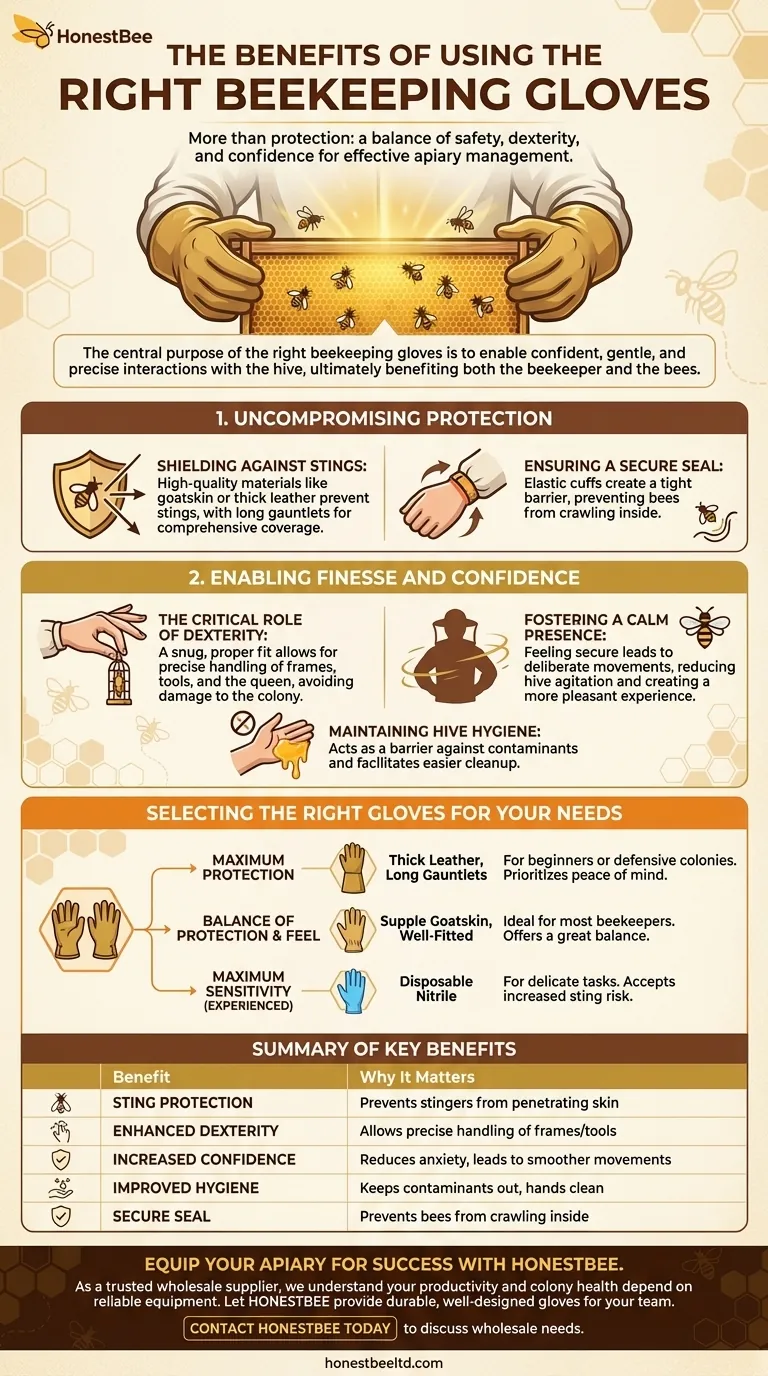
Related Products
- Beekeeping Gloves Goatskin Leather with Long Cotton Sleeve for Beekeepers
- Goat Skin Leather Bee Sting Proof Beekeeping Gloves with Canvas Sleeve
- Goatskin Leather Beekeeper Gloves with Vent Long Sleeve for Beekeeping Honey Bee Sting Proof Protection
- Premium Ventilated Goatskin Beekeeping Gloves with Full 3-Layer Mesh Sleeve
- Professional Galvanized Hive Strap with Secure Locking Buckle for Beekeeping
People Also Ask
- Why is personal preference important when choosing beekeeping gloves? Find Your Perfect Fit for Protection & Dexterity
- What are the steps to clean cow leather beekeeping gloves? Protect Your Investment & Hive Health
- How should beekeeping gloves be maintained? Protect Your Investment and Dexterity
- Why is it important to clean beekeeping gloves regularly? A Guide to Hive Health & Safety
- What might experienced beekeepers prefer regarding gloves? Prioritizing Dexterity Over Protection


